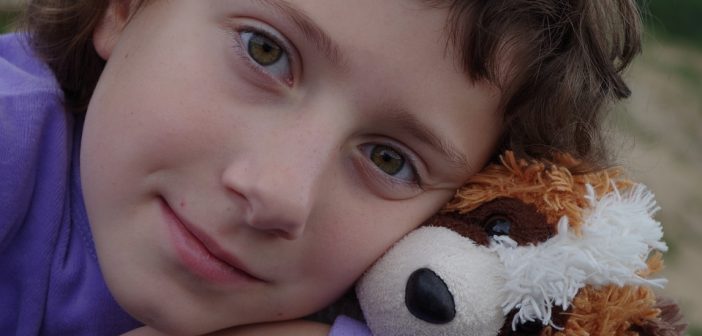From before I can remember to when I was older than I care to admit, I had a special friend. It was a ratty piece of cloth called Choo Choo. Or was it Chew Chew? I don’t really know. I wasn’t much of a speller back then but the germy little rag probably had more to do with my teeth than it did with trains.
So let’s go with Chew Chew.
Chew Chew was pink, yellow and white striped, and probably started out as a bed sheet, but was gradually cut down – most likely by my mother in an attempt to create spares for those inevitable times when Chew Chew would be misplaced or left at my grandparents’ house.
Unfortunately, I knew which corner of that sheet was my Chew Chew and which were the imposters. The genuine article was much more worn and tattered than those other clean bits. They just didn’t do it for me like Chew Chew did.
Chew Chew went with me everywhere. To the shops, on visits to scary places like the doctor or the dentist, pretty much anywhere involving a car trip – and most importantly, to bed with me each night. I’d rub that disgusting piece of cloth on the side of my face until I drifted off to sleep.

Eventually, I grew up and left Chew Chew behind. It lived in a box at my mother’s house for some years, only to be reluctantly bid farwell only a few years ago. (I say “reluctantly” but that’s mostly from my perspective. I think my mother was glad to see the back of it.)
Comfort toys or pieces of cloth are a pretty common fixture in many children’s lives – in fact 60 per cent of children have some kind of comfort object. And we’ve known for a long time that they’re not an unhealthy thing to have. In 1951, child psychologist Dr DW Winnicott defined “transitional objects” as “any material to which an infant attributes a special value and by means of which the child is able to make the necessary shift from the earliest oral relationship with mother to genuine object-relationships.”
So even back in the 50s, we knew that having a special comforter helped kids to be brave and make their way in the world without Mum in small, manageable ways. Basically, it was a great tonic for separation anxiety – and in today’s society that’s a great help when we send our kids off to daycare.
When I sent my youngest child to daycare at four months old, she steadfastly refused to take a bottle, a dummy, or any form of comforter. It was a tough time (and I spent a lot of time visiting for cuddles and breastfeeds). At the age of four she still doesn’t form attachments to anything other than people. Well, me mostly.
So although many think of having a comfort object as immature or “babyish”, in fact the opposite can be true. These objects can empower small children to be more independent than other children their age.

When I had to be brave and open wide for the dentist, Chew Chew was there. If I feel over in the playground at kindy, a cuddle with Chew Chew and I was all good. And when I was a little bit scared of the dark when Mum turned out the lights at bedtime, Chew Chew helped me to feel better and drift off to sleep. Basically, Chew Chew made me less needy.
Mercifully, I don’t remember the day Chew Chew went to live in the box at the top of my mother’s cupboard. I don’t know whether I lost interest first, or whether the separation was more forced. But clearly, either way, I wasn’t too traumatised. But experts say that criticising or hiding the comfort object can lead to attachment difficulties in later life, so if your child has something that helps them get to sleep at night, it’s best to let them be.
And perhaps your child will outgrow their object, or perhaps they won’t. A massive 35 per cent of adults still have a comfort object, and therapist Gerri Luce says that even adults can benefit from the presence of their beloved items to get them through difficult periods, as long as it doesn’t interfere with their intimate or professional relationships (so don’t take Cuddles to work with you).
Having an object that can give you a sense of wellbeing and perhaps make you braver than you otherwise would be is a wonderful thing, and nothing to be ashamed of. Maybe when you were a kid it was a stuffed elephant, and maybe now it’s an iPhone. As long as your needs are being met, you’ve got nothing to worry about.

